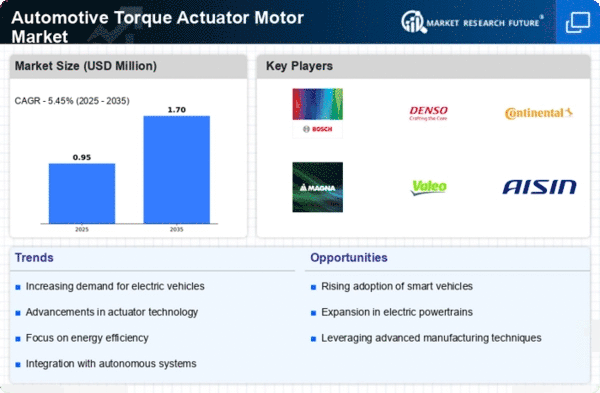Market Analysis
In-depth Analysis of Automotive Torque Actuator Motor Market Industry Landscape
Stringent regulations on vehicle emissions have become a global priority as the environmental impact of exhaust emissions, particularly from diesel engines, continues to be a significant concern. The widespread use of turbocharger engines has emerged as a crucial strategy in addressing environmental pollution and complying with these stringent regulations.
Diesel engines, known for their efficiency, have also gained notoriety as one of the major contributors to environmental pollution due to their exhaust emissions. These emissions contain pollutants that can have detrimental effects on air quality and contribute to climate change. To counteract these issues, governments and regulatory bodies around the world have implemented stringent policies aimed at curbing the negative environmental impact of vehicle emissions.
The revised regulations are comprehensive, encompassing a wide range of vehicles, including those powered by petrol, compressed natural gas (CNG), liquefied petroleum gas (LPG), electric, diesel, and hybrid systems. This broad approach reflects a commitment to addressing pollution from various sources, acknowledging that each type of vehicle has its own set of challenges and environmental implications.
The advantages of turbocharger engines extend beyond emissions control. These engines are known for their improved fuel efficiency, which not only benefits the environment but also offers economic advantages to vehicle owners and operators. The enhanced power output of turbocharged engines contributes to better overall vehicle performance, making them a preferred choice in the automotive industry.
As governments and regulatory bodies continue to tighten emission standards, the automotive industry is witnessing a shift towards cleaner and more sustainable technologies. Electric and hybrid vehicles, in particular, are gaining popularity as alternatives to traditional combustion engine vehicles. However, the transition to these technologies takes time, and in the interim, turbocharger engines serve as a practical and effective solution to meet stringent emission regulations.
The global focus on stringent vehicle emission regulations has prompted the widespread adoption of turbocharger engines as a key strategy in mitigating the environmental impact of exhaust emissions. These regulations, applicable to a diverse range of vehicles, underscore the importance of addressing pollution from various sources. Turbocharger engines not only contribute to emission control but also offer additional benefits such as improved fuel efficiency and overall vehicle performance. As the automotive industry continues to evolve towards cleaner technologies, turbocharger engines play a vital role in the ongoing efforts to create a more sustainable and environmentally friendly transportation landscape.


















Leave a Comment